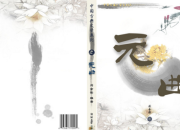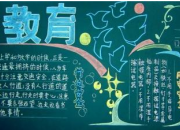主题为诚信的英文演讲稿
时间:2021-08-31篇一:有关诚实的英语演讲稿
Honesty——The Beauty In My Eyes Respectable teachers and friends.I am XXX,from XXX.Today my topic is “honesty——the beauty in my eyes”.
Walking on campus with flowers blooming,the beauty can be seen everywhere.However,the moral beauty is spreading without being noticed.As we all know,honesty is the universal code of ethics.In my view ,honesty is the beauty on campus.
If you are dishonest,it`s impossible to gain other people`s trust.Instead,people will respect and think highly of you if you are honest.Being honest will help you live in peace and harmony.Honest is playing a more and more important role in our life.
One of my roommates as well as my best
friend,isn`t good at finance.He always borrows our money.However,we are willing to help him and never judges him.Because he always pays back the money as soon as he has money on hand.So honesty is essential to establish our relationship in society.
On the other hand,there are many behavious around us showing the lack of honesty,such as,cheating in
exam,telling lies in order to skip classes and so on.These behaviours reduce college students` moral standard and also damage other people`s trust on the students.The harm is self-evident.
In my view,being honest and trustworthy is the basic principle.In modern society,people are
increasingly realizing the importance of honesty.As college students who are receiving higher education,we should keep the promise that we are never do things which will destroy the national interests or other people interests.Please always remember:honesty is the best policy.
In a world,our campus doesn`t lack beauty,we should find the beauty,create the beauty and develop the beauty.Let`s build a harmonious campus with our honesty.It`s the beauty that never fades and lasts forever!
My speech ends here,thanks for lisenting!
篇二:英语诚信演讲
Why integrity is important in business?
Good evening,ladies and gentlement,it’s my great honor to stand here and give you a short speech.To start with, I want to ask a question. Have you ever eaten fake goods? Have you ever experienced commercail fraudmy speech is why integrity is significant in business. please look at the powerpoint.I have dividied my talk into three parts:firstly,the importance of job satisfaction; secondly,the factors of job satisfaction;finally,how to achieve job satisfactionLet’s leave that there, now, let’s come to the last part
There is an English proverb which says“integrity is thebest policy”.It signify the importance of integrity.What are the benefits of integrity?If you are honest to others,they will be honest to you in return.When you are in trouble, they will help you immediately.
It goes without saying that integrity is crucial in business. However,why we raise integrity again today? Yes,that is because there are plenty of horrifying things flooding the market.fake cigarettes,fake alcohol,fake milk,fake diplomas,fake name,and so on.
People may can’t help to ask why our life is filled with fake goods.what’s,they feel deeply worried about food safety.The key
to the problem is at the root of the lack of integrity.The value of integrity in business has obvious and subtle implications.When you pay your bill and company employees,you make commitment to integrity.When you file taxes,report to your investors and make commitment to your customers,you communicate virtue.Honest business practices inspire customers Respect with customers for your mission.For a commpany,integrity means the soul,the essence,the top policy.Honest business practices build foundations of trust with your rivals.Treating your
rivals in the ways that you want them to treat you will create mutural benifit and trust.A businessman can resist short-term profits at the expense of long-term commitment to the web of relationships which his business is involved.Otherwise,it will get into vicious circle.
Why integrity is important in business? Good evening,ladies and gentlement,it’s my great honor to stand here and give you a short speech.To start with, I want to ask a question. Have you ever eaten fake goods? Have you ever experienced network fraud。Have you ever heard of fasle accounting?I think most of you will say yes.today,my speech is why integrity is significant in business.
In the "two sessions" period, the most popular topic is not
financial issues but credit problems. "Good faith" almost become deputies and members most frequently used words.There is no doubt that China’s economy is becoming stronger and stronger.However,along with its development ,there is a potential huge problem is threatening its sustainable development.That is the integrity problem.
Horrying dishonesty problems are just like an devil surrounding us. We fear that the bridge may collapse which we are driving on , we fear that the house may collapse which we live in .We fear that we may be deceived when we eat outside. Fake diplomas, false accounts, false contracts, the word "fake" seems to be pervasive. From the counterfeit market to secret operations on the stock market; from black whistle on football to academic corruption;from commercial fraud to individual local government and so on.Credit crisis, credit deficiency have become the sepsis.market economy.According to the National Bureau of Statistics, because of some enterprises dishonesty, it led to direct or indirect economic losses of 500 billion yuan last year, 500 billion yuan means what?how many laid-off workers can solve! How many school children can solve! How many samll enterprises can save.
China's economic development can not be separated from
investment capital.The financing method isn’t essential but the good credit environment. Because the improvement of hard environment is not very difficult, but the construction of credit environment needs a longer process.Beijing's old brand "tongrentang , good faith management for 350 years, from a little-known household pharmary becomes the first brand of Chinese medicine. The potential credit value is obvious.
A business will not prosper without sincerity and a person will not succeed without trust.Integrity is the top policy of life, the basis of government,even,it is the golden rule of the market economy. In the world, the jews is very rich, they are skilled in business.The secret to their success in their business lies in keeping business ethics integrity.In the minds of the jews, the contract is sacred and can not be destroyed. They have benefited a lot from it, which was a great wealth.
A government and social environment of honesty and trustworthiness is the fundamental of investment confidence.vice versa,the environment where is a lack of credit and rampant fraud, disorder of market place, certainly will not become an investment hot spot, certainly will not become a cradle of enterprise development and growth. In the long run,
the economy trauma can be calculated by money, while the lack of honesty and trustworthiness is difficult to measure with money. Only the construction of the credit government, only the construction of the credibility of the community, investment behavior and investment security can be guaranteed.
Market economy has two eyes: one is the visible eye, namely the rule of law; the other is the invisible eye, this is the integrity. Like a beautiful girl, no matter which eye blind, full of the defects and misery!
If we compare the business world as a battlefield,the most efficient weapon we can use is integrity and morality,Only if we use integrit to run business and build harmony business world,and as a result, both businessmen and customers will has a double win from it
“狼来了”的故事,想必大家都知道。故事中的放羊娃因撒谎,把信用当游戏,最后被狼吃掉了,付出了生命的代价。小时候,父母就给我讲过“狼来了”的故事,告诫我要做一个诚实守信的人。现在,我又把这个故事讲给我的女儿听。 在今年的全国“两会”期间,最热门的话题不是wto,而是信用问题。“诚信”几乎成为代表、委员们使用频率最高的`词。“诚信”者,“诚实守信也”。“诚实守信”既是华夏文明的精髓,又是中华民族的传统美德,同时也是我国











